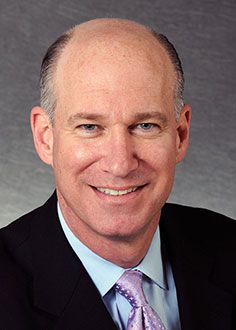
President Obama's initiative to curb violence in America continues to be at the center of a fractious debate in Congress, one punctuated by the daily toll taken by guns in America today.
At this writing a massive manhunt is under way for a shooter in California. And that news comes on the heels of the Newtown tragedy in which 20-year-old Adam Lanza forced his way into the Sandy Hook Elementary School opened fire and killed six women and 20 first graders. Those cases fall into a long string of high-profile gun violence cases that have rocked communities in Colorado, Virginia, Pennsylvania, North Carolina, Washington, Georgia, Illinois and Texas. A just released survey provides the details on 43 mass shootings in 25 states - saying the shootings have occurred at an average of one per month. And past studies tells us that many mass shooters suffer from severe mental illness, such as schizophrenia, psychosis and other problems.
President Obama's plan, which includes a ban on assault weapons and addresses a number of mental health items, deserves our strong support. Here's why: As the president's plan correctly notes we must not only tackle gun control but we must also fix deficiencies in the U.S. mental health system, gaps that can leave many people with serious mental illness and family members without an easy way to get the treatment and support we know can help avert catastrophes.
An estimated 7 million people in the United States suffer from severe mental illness and only half get the treatment they need to remain stable. The remainder regularly experience disruptive symptoms that can, if left untreated, lead to a string of failures, and in some cases- violence. What's a miracle is that most of these individuals continue to cope with these symptoms and never commit a violent act.
Yet there's no question that we must find better ways of zeroing in on people who are prone to violence - before they reach a crisis. President Obama's plan calls on the Centers for Disease Control and Prevention to start researching gun violence, and such efforts must include more detailed profiles of people likely to commit violent acts.
Once they are identified the United States needs to remove a host of legal, financial and social barriers and develop more effective ways of treating these individuals - fast. Under the current system, no one can require someone with mental illness to seek treatment. And many of these individuals do not believe they are ill and will not take medicine or see a counselor voluntarily. And even if they are ready for treatment, in many parts of the country there are long waiting lists for psychiatric care, including inpatient hospital care.
In the 1950s, the United States started to close down many state psychiatric hospitals, and from a high of more than 500,000 such beds we are now down to just 43,000. That shortage of inpatient psychiatric care means that even if Adam Lanza's mother had tried to get him committed it would have been difficult, if not impossible, to find a bed in a psychiatric treatment center.
The president also called on the secretary of the U.S. Department of Health and Human Services to initiate a national dialogue on mental health. That's a series of talks that the nation urgently needs to undertake in order to remove the shroud of silence that blankets mental illness. We simply must start to talk frankly about mental disorders, which affect an estimated 57.7 million people in the United States today.
President Obama announced his plan last month as children and family members from Newtown looked on and in that press conference he noted that an estimated 900 Americans were gunned down in the month since the Sandy Hook shooting. They joined a list of more than 300,000 people who have lost their lives as a result of gun violence in the last decade. At the same time, we know that about 300 million people in the United States now own guns - everything from handguns to the Bushmaster rifle that Adam Lanza used in the deadly attack on the schoolhouse at Sandy Hook.
Lawmakers in Washington now have the tough job of considering not only the president's plan but all of the complex factors that go into the epidemic of gun violence in this country. The nation cannot fix every aspect of this public health issue overnight but we can and must continue step by step until we have put in place solutions that will safeguard all of us-from the six- year old in Anchorage, Alaska to the 85-year-old in Miami and people living in every neighborhood in between.
---
ABOUT THE WRITERS
Lynn R. Goldman is a pediatrician and the dean of The George Washington University School of Public Health and Health Services, and Jeffrey S. Akman is a psychiatrist and the dean of the GW School of Medicine and Health Sciences. Readers may write to them at: School of Public Health and Health Services, The George Washington University, 2175 K Street NW, Suite 350, Washington, D.C. 20037.
Published by the McClatchy-Tribune News Service


